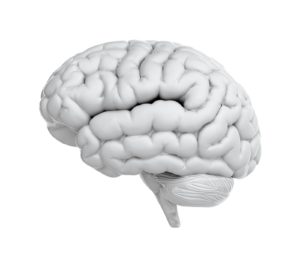Why Phoenix?
Concussion patients often describe feeling a sense of “renewal” or a return to their former self after their recovery is complete.
Lauren Ziaks, PT, DPT, ATC, NCS can understand this feeling completely. During the early days of her brain injury, she felt like everything was harder than it was supposed to be and just completing her daily tasks was exhausting. Once she was on the path to recovery, she could feel her old self returning. When she was finally back to her normal energetic self, she felt like a new person and so grateful for all the amazing things in life.
A Phoenix’s path of rising from the ashes to a big, beautiful, and strong bird is the perfect mascot for our Concussion Return to Life & Sport program.
Click here to learn more about Lauren & Melinda’s path to becoming experts in the field of concussion. All the information found on this site has been developed through evidence-based practice and is supported by research and clinical findings.
Watch this video for a quick summary of recommendations for the first 24-48 hours. You can explore the site when you’re feeling a little better!
Patient Consulting and Provider Training Now Available!
Phoenix Concussion Recovery is excited to announce we now offer consulting services and provider trainings!
Phase 1 launched July 2022! More content coming soon.
Please see our Integrative Concussion Management Program Page to learn more.
Patients living in PTCompact States can how have access to telehealth services with Lauren Ziaks, PT, DPT, ATC, NCS.
*For treatment in Utah, Lauren is able to provide in-person appointments only through her primary employer*
Learn more about concussions including how to identify a concussion, what happens to the brain during a concussion, and what to do if you experience a concussion. It’s all in here!
Concussed and unsure what to do? Start here to learn the early guidelines we teach our patients. What you do early in your recovery can have a huge impact on your overall outcomes!
Learn more about concussions including how to identify a concussion, what happens to the brain during a concussion, and what to do if you experience a concussion. It’s all in here!
Concussion
When it comes to concussions you can never be too prepared or too careful. Explore our site to learn more about concussions and the treatments available. The days are gone of “healing is done in 12-18 months”. We now know that targeted therapies can offer larger healing windows and can often return patients back to pre-injury levels of health.
If you are continuing to suffer post concussion / mTBI please explore our advanced treatments section. There is always more to be done to improve quality of life and outcomes. Feel free to contact us for more information.
If you are ready to start your Return to Life & Sport process, use the button below to learn more about our exercise program!
Quick Facts:
- Although most research continues to focus on youth athletes, the majority of concussions are due to falls.
- Concussions can occur to patients of any age and can happen from falls, motor vehicle accidents, intimate partner violence, sports and more.
- You do not need to be knocked out to have a concussion, this only occurs in <10% of patients.
- There is evidence of decreased cerebral (brain) blood flow in first 10-30days
- There is a 90% re-injury rate in first 10 days with football having the greatest re-injury rate (6x all other sports)
- It is estimated that 5-10% of athletes will experience a concussion in any given sport season
- The most common symptoms reported immediately after a concussion are: Headache (85%) and Dizziness (70-80%)
- It is possible to not have symptoms immediately – remember symptoms can be delayed up to 72 hours! Patients will describe feeling that they were coming down with an illness unaware that their concussion symptoms were starting.
- No matter how far out you are from your injury, you can continue to make improvements. Never give up hope.




